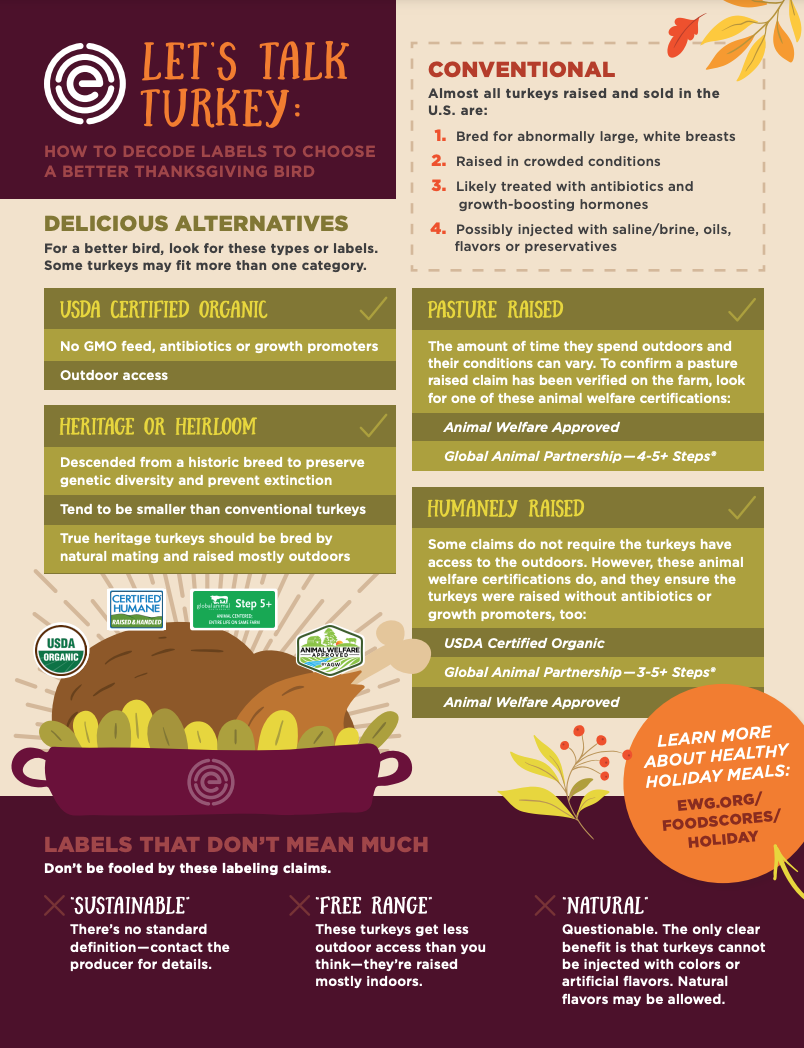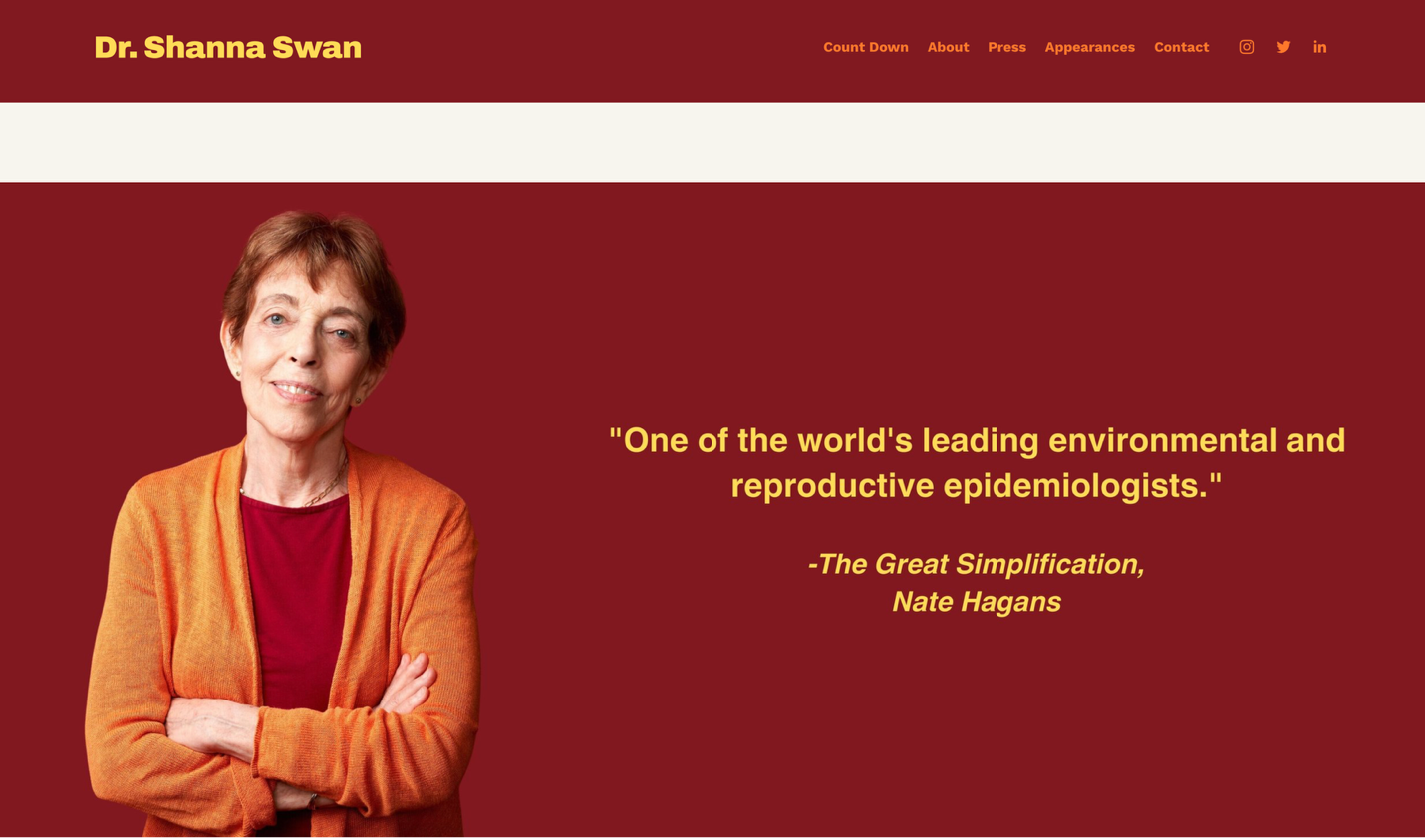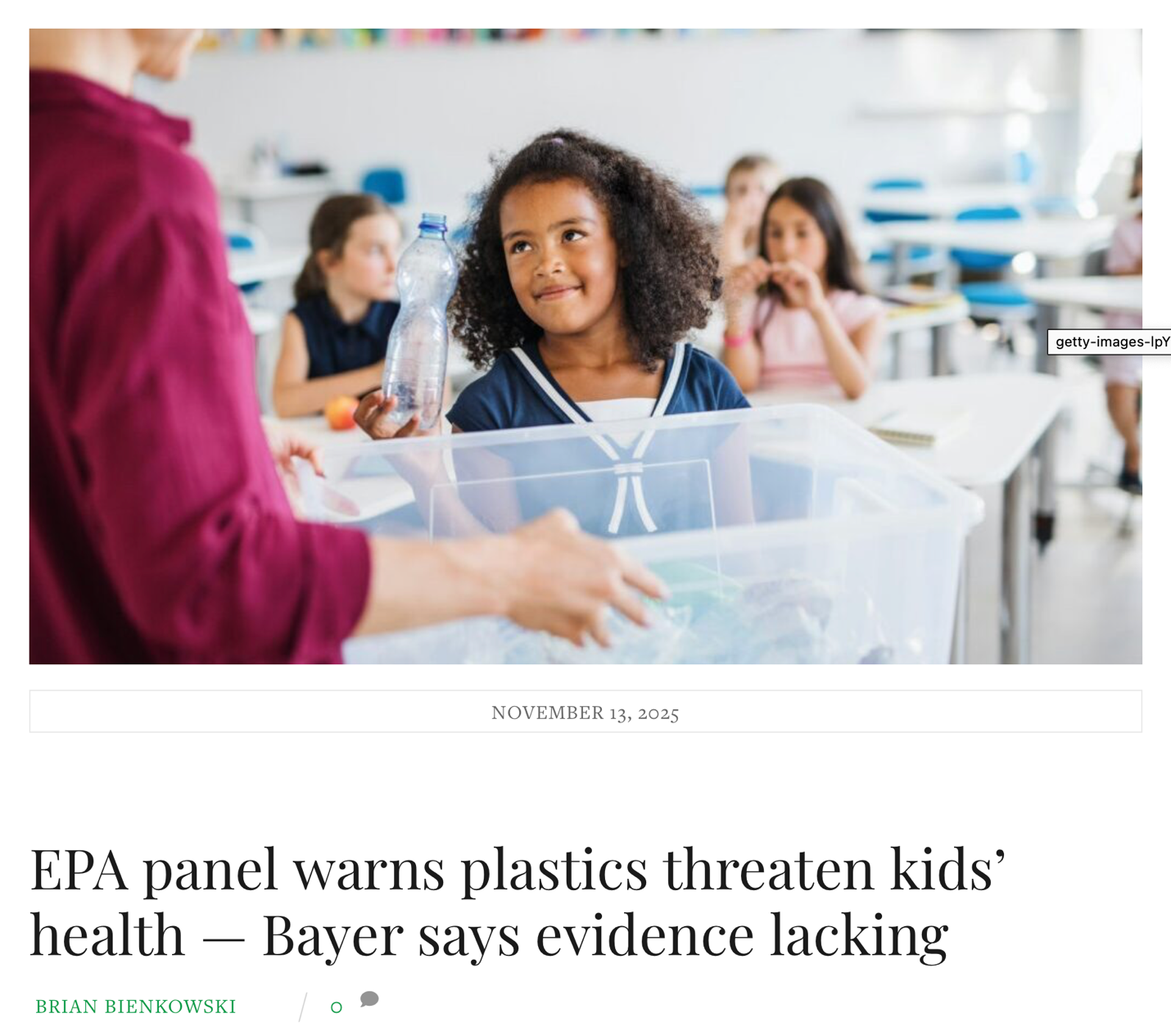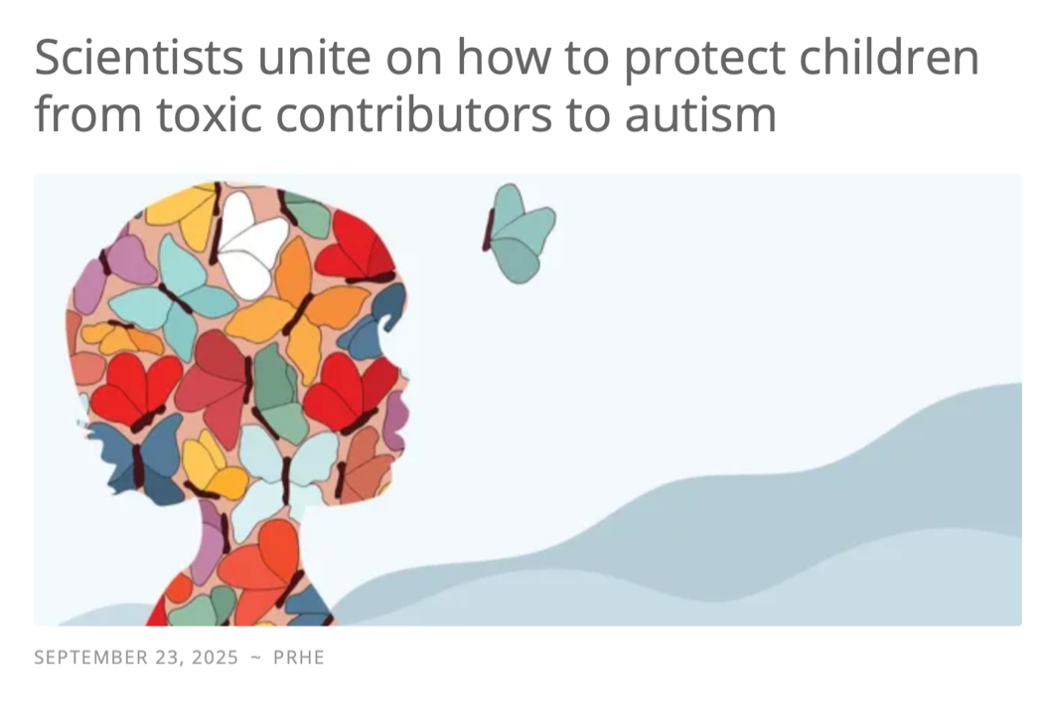You can download EWG's Guide to a Healthy Thanksgiving here.
1) Roughly a third of the meat on every turkey goes straight into the garbage. If you tend not to finish your leftovers, buy a smaller bird this year. Try an organic, local or heritage turkey or one raised without antibiotics. Or embrace a seasonal centerpiece of stuffed winter squash.
2) Cranberry sauce is delicious, but most store-bought varieties are more than 30 percent sugar. Make your sauce from scratch for great flavor and a nutritional boost. Use less than two-thirds of a cup of sugar per 12 ounces of cranberries, and opt for organic cranberries if you can. Conventional berries are heavily treated with pesticides.
3) Pumpkin pie is a Thanksgiving tradition, with good reason. Pumpkin is packed with nutrition, widely available locally and generally low in pesticides. Baked pears are simple and delightful, too.
4) White potatoes make EWG’s Dirty Dozen foods because of high pesticide loads. Buy organic or cook nutrient-packed mashed sweet potatoes.
5) Homemade gravy is a delicious way to get the most out of your turkey, but packs in the empty calories. Store-bought gravy can contain heart-damaging trans fats and too much sodium. Enjoy gravy in small doses or try a light, flavorful mushroom ragout instead.
6) Stuff your stuffing with low-pesticide produce. Organic apples, celery, pears and carrots perk up stuffing and add nutritional punch. Walnuts and pecans work nicely in place of sausage or oysters.
7) Green beans are a Thanksgiving staple, but canned options are high in bisphenol A, a toxic chemical in the epoxy that lines metal food cans. Go for fresh or frozen organic green beans or other nutritious veggies like peas, broccoli and Brussels sprouts.
Learn more about feeding your family well and finding healthier choices in the grocery store with EWG’s Food Scores: www.ewg.org/foodscores












